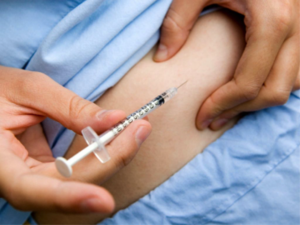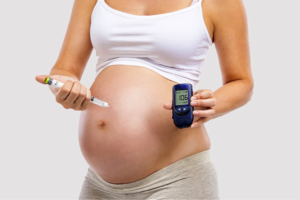DoctorOnCall.com.my FEATURE ARTICLE
Diabetes Mellitus is a condition whereby your blood glucose, also known as blood sugar, is higher than normal limits. Our body utilises blood glucose to generate energy for our day-to-day activities. And this glucose comes from the food that we eat, digested and broken down. The glucose is then absorbed into our bloodstream to be utilised by metabolically active cells like muscles, brain etc.
In a normal healthy person, blood glucose is under the hormonal regulation. Pancreas is the main power house for the production of hormones regulating blood glucose level, i.e. insulin and glucagon. In simple framework, insulin allows glucose in the bloodstream to be transported into the cell for utilisation, thus decreasing glucose flowing through the blood. Glucagon, on the other hand, increases blood glucose level through several metabolic process.
In people having diabetes mellitus, either the insulin production is not enough or the target cells are not responding adequately to insulin. Both these pathological processes cause a spike in blood glucose level and this is not good in the long run. Too much glucose in your blood can cause health problems.
What to look out for?
Diabetes Mellitus may only have a few presenting symptoms that people often ignore and this causes late diagnosis of the disease. So look out for these few symptoms:
- Feeling thirsty easily
- Feeling very hungry
- Feeling very tired
- Passing urine in increased frequency
- Losing weight unintentionally
- Sores or wounds that heal slowly
- Dry, itchy skin especially of the limbs
- Feeling of pins and needles in your feet or hands
- Losing sensation over your feet or hands
- Eyesight blurring
If you are experiencing these symptoms, have a visit to your healthcare provider to have your blood glucose test done.
Types of Diabetes mellitus
There are many types of diabetes mellitus in academic point of view but only a few are commonly encountered. For the simplicity of this article, there are 3 common types of diabetes mellitus.
Type 1 Diabetes mellitus
Diabetes Mellitus Type 1, previously known as juvenile diabetes, have its onset in young people. However, type 1 diabetes can also have their initial onset in adulthood. In Type 1 Diabetes, the body does not produce enough insulin from the pancreas due to autoimmunity. This means that the immune system itself attacks the glands that produce insulin and destroys them. Ultimately, the pancreas does not produce sufficient insulin anymore.
Treatment for Type 1 diabetes:
- Regular subcutaneous injection of insulin (usually artificial insulin)
- Lifestyle changes including healthy food choices and regular exercise
- Medications may also be used to control blood pressure and cholesterol levels if these were found to be abnormal.

Type 2 Diabetes mellitus
Diabetes mellitus Type 2, also known as adult-onset diabetes, affects people of all ages. Conventionally, this type only has its onset in adulthood but with the ever increasing obesity and other lifestyle factors, children are nowadays found to have Type 2 instead of Type 1. In type 2, there is insulin resistance – meaning the target cells (fat, muscle and liver) do not respond to insulin stimulation to take up glucose from the bloodstream as effective anymore. This causes the pancreas to produce even more insulin to counter the resistance. Over time, the pancreas just fails to produce as much and each time after a meal, there will be a spike in blood glucose
Treatment for Type 2 diabetes:
- Medications can be used to control blood glucose level. Your doctor will prescribe the most suitable drug accordingly.
- Lifestyle changes such as healthy food choices and regular exercise
- Also take steps to control your blood pressure and cholesterol levels as these usually go hand-in-hand

Gestational Diabetes Mellitus
As the name implies, this type of diabetes is encountered in pregnant women. During pregnancy, there are changes in hormonal secretion and some of these hormones interact with insulin, causing insulin resistance. If the pancreas does not meet the demand for insulin, gestational diabetes develops.
Overweight or obese mothers are usually at higher risk of developing gestational diabetes. Most of the time, gestational diabetes resolves within 6 weeks post-partum (i.e. after delivery). But keep in mind that studies have shown that those who have had gestational diabetes are at risk of developing Type 2 Diabetes Mellitus later in life. Also, babies who are born to mothers having gestational diabetes while pregnant are also more likely to develop obesity and Type 2 Diabetes. If the blood glucose level is not controlled during the pregnancy, complications can occur -polyhydramnios (too much amniotic fluid), a large baby, etc.

Complications of Diabetes Mellitus
Having uncontrolled blood glucose levels over time will have adverse effect on the body. This includes:
- Heart disease
- Stroke
- Peripheral arterial disease that could lead to amputation of toes, feet or leg
- Kidney failure
- Eye problems – Cataract, diabetic retinopathy, neovascular glaucoma
- Nervous system problem – Losing sensation of the hands and feet (aka glove and stocking distribution)

The Health Care Team
Managing a patient with diabetes mellitus is never a one-man job. If you are having diabetes, your healthcare team would includes:
- Primary care provider
- Endocrinologist for specialised diabetic control
- Ophthalmologist for eye care
- Nephrologist for kidney care
- Podiatrist for foot care
- Counsellor or mental health professional
- Dietician for better diet modification
- Dentist
- Pharmacist
Remember, diabetes mellitus is treatable and manageable. Do not fall into despair with the diagnosis of diabetes mellitus. With proper care and control, most patients can still lead a normal life and achieve life satisfaction.
Dr Adeline Carol Peters practices in Mediviron UOA, KL and on DoctorOnCall. She loves playing the piano in her spare time.

DoctorOnCall provides fast, easy and cost-effective access to Malaysia’s top doctors through their smartphone or computers at any time of day & have their medications delivered to them. We believe that this is the future of healthcare and together with our medical providers will provide you with better healthcare at a more affordable cost.
